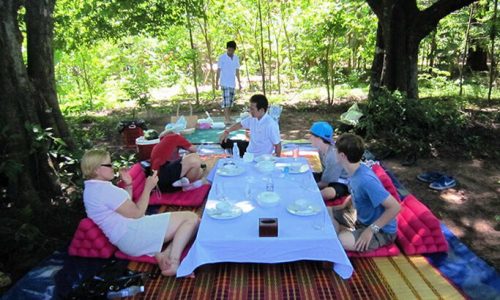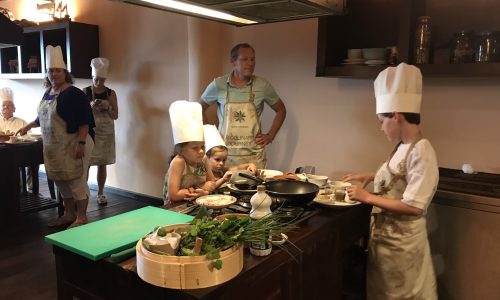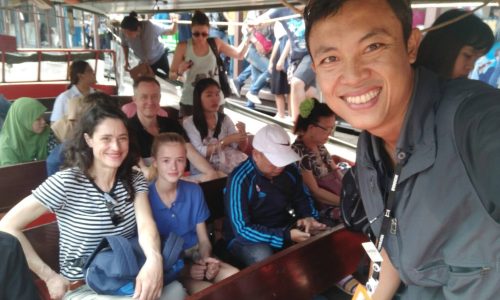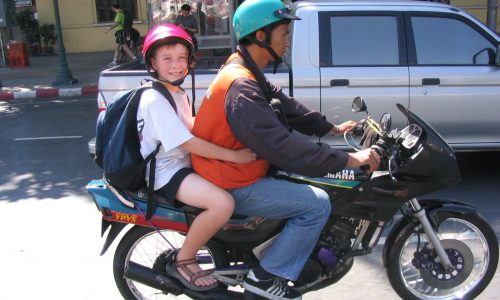Is Travel the Best Education?
9 june 2021
Most of us remember summer holidays as kids: no school, time with friends, running around having new experiences. Many of us actually learned more valuable lessons from those days than we did in school. Wouldn’t it be great if those days could go on endlessly? Wouldn’t it be great if holidays were our education?
It’s not hard to find plenty of families who are doing just that, families who have recognized the intrinsic value of doing versus reading about. Smiling Albino has been lucky enough to have hosted several of these families over the past few years, and it’s always been an honor and a pleasure to see how much families – especially children – can learn on even the most mundane day in a new culture and country. We take a particular interest in helping kids learn about their trip on a level that adults can’t match.
For many parents however, the thought of taking their kids out of school to travel is an anathema to actually getting educated, but there are plenty of arguments to the contrary. Whether it’s a week, a month, a year, or longer, the value that traveling brings to a young mind simply cannot be overstated. Of course, we travel for a living – it’s both our source of inspiration as well as income – so you’re forgiven for thinking we have a biased opinion, so don’t take our word for it.
Don't Take Our Word For It
Take the Miller family from the Edventure Project. They say, “Is there any better education than travel? Having been thrown into the back of a van and schlepped all over North America myself as a child, I can answer heartily: “No!” There is no shortage of learning taking place when we’re on the road. History, Geography, Art, Literature, Music, and Languages are no brainers. There is no clear line between “school time” and “rest of life” in our family. Life is learning.”
Over at Family On Bikes, the Vogel family mentions one instance where it all came together. “It was one of those moments when you realize you’re doing the right thing by taking the kids out to travel the world. Sitting around the campfire, sleeping under the stars… time to talk… conversations drift… and all of a sudden, you find you are in the middle of a most incredible educational experience! Which one was my favorite? The night we camped near the Grand Canyon and our conversation drifted to nuclear reactions and nuclear bombs. It wasn’t long before we were talking about energy sources… and the need for renewable energy… and finally, how we could solve all the world’s problems.”


Can our family do it?
The most important thing to consider is that a child’s mind is like a sponge, and every word, sound, experience, color, smell, conversation, taste, and action they partake in is sucked up and processed. Problem solving is done within the framework of a new language and culture, leading to solutions that would not be possible in a traditional learning environment. How many children sitting in a classroom back home know what a rainstorm on the Burmese border smells like? How can the experience of painting a picture in art class compare to going on a walk with Hmong hill tribe children to photograph a waterfall?


Perhaps the folks at Our Travel Lifestyle said it best: “It’s been amazing to have the time to appreciate how effortlessly he soaks up new knowledge regardless of whether it’s how to add and subtract, geography, obscure facts about dinosaurs with hugely complicated names that only children and paleontologists can pronounce, or the workings of a Buddhist temple. Watching your child accept children of all cultures and backgrounds, without preconceived ideas or prejudice is something every adult should take the chance to see and learn from.”
Of course, we realize that it’s not possible – or even desirable – for parents to take off on a round-the-world trip, but that’s okay. A week is better than nothing. Two weeks is better than one week. The important thing is that your child at least has the opportunity to see things through a different lens. And who knows where that might lead them?
